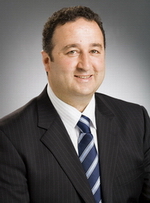
Sada-e-Watan Sydney ™
Sadaewatan@gmail.com
A short speech of The Hon. Shaoquett Moselmane on a very important bill which has passed the NSW Parliament

CRIMES AMENDMENT (FEMALE GENITAL MUTILATION) BILL 2014
The Hon.
SHAOQUETT MOSELMANE [9.37 p.m.]:
I support the Crimes Amendment (Female Genital Mutilation) Bill 2014. The time
has come to update this legislation in New South Wales in line with other
jurisdictions and community expectations. In March 2013 the Standing Council of
Law and Justice agreed to the recommendations of a Commonwealth review into laws
in this area aimed at providing uniform and consistent laws across Australia.
New South Wales has had laws prohibiting this practice since 1995, and previous
speakers in this debate said that the issue was debated in 1994 when similar
legislation was introduced. This initiative is supported by all political
parties in Australia, and rightly so.
The Commonwealth review found two major inconsistencies. First, the penalty in
New South Wales of up to seven years imprisonment was less than in any other
jurisdiction; and, secondly, the New South Wales laws as they stand do not have
provisions relating to removal. That means it has not been an offence to remove
a girl or woman for the purposes of female genital mutilation. That is an
important point and one about which communities are becoming more aware. The
passage of this bill will mean that individuals will think twice before becoming
involved in the offence of female genital mutilation.
These anomalies have been addressed in the amendments before the Chamber. As
outlined by previous speakers here and in the other place, item [2] of schedule
1 to the bill amends section 45 (1) of the Crimes Act to increase the maximum
penalty for performing female genital mutilation from seven years to 21 years
imprisonment. It is important that the community knows the severity of the
punishment so that it acts as a deterrent to people participating in this
terrible crime. This will bring the maximum penalty in New South Wales into line
with the penalties applicable for performing female genital mutilation in
Western Australia and Tasmania. Increasing this penalty to a maximum of 21 years
also brings the penalty into line with similar offences in New South Wales, such
as intentionally causing grievous bodily harm or wounding, which carries a
maximum penalty of 25 years imprisonment.
Item [4] of schedule 1 to the bill amends the Crimes Act to introduce a new
offence of taking a person or arranging for a person to be taken from the State
with the intention of having female genital mutilation performed on that person.
The offence will apply to girls and women alike. For example, it will cover
situations where a woman is forcibly removed or coerced into leaving New South
Wales, where a person arranges the procedure outside of New South Wales, or
where a plane ticket is bought for a woman for this purpose. Importantly, the
evidentiary burden will be placed on the person arrested. As part of the
amendments, the prosecution will only need to prove that the person took or
arranged to take the female from New South Wales for the purpose of female
genital mutilation while she was outside the State. The accused can lead
evidence to rebut this presumption.
Subsection (3) of proposed section 45A states that consent of the person to be
taken from the State is not a defence to the removal offence. That is consistent
with laws across Australian jurisdictions and the model criminal code. The
removal offence will carry a maximum of 21 years imprisonment to ensure
consistency with the offence of performing female genital mutilation in section
45. Schedule 2 provides further protection to children by requiring that the
Children's Guardian conduct a risk assessment, under the Child Protection
(Working with Children) Act 2012, of a person charged with a removal offence
under section 45A of the Crimes Act.
Female genital mutilation is a cultural practice, not a religious practice. It
predates Christianity, Islam and other religions. The New South Wales Government
must do all it can to stamp out this unacceptable practice. It is a depressing
fact that female genital mutilation is carried out in a number of places around
the world, including in Australia. The shadow Attorney General said in the lower
House that around 600 to 700 affected women were being seen annually in
Australia. Australia has rightly branded this cultural practice for what it is:
a crime. Those guilty of it should and will be punished. It is essential that
teachers, doctors, social workers, community leaders and law enforcement
agencies work together to stamp out this practice. I am pleased that the New
South Wales Government will run a public education campaign to complement these
laws to ensure there is no confusion in our communities about the unlawfulness
of this practice and the seriousness with which perpetrators will be dealt. I
commend the bill to the House.